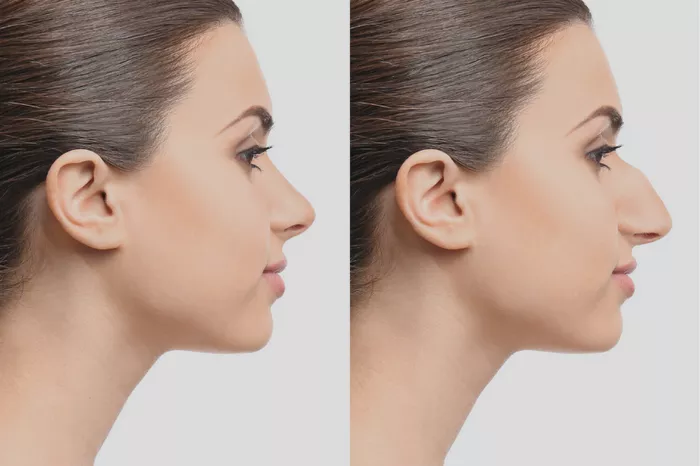Rhinoplasty, commonly known as a nose job, is a surgical procedure that aims to enhance the appearance and functionality of the nose. It can address various concerns, such as correcting the shape, size, or proportions of the nose, improving breathing difficulties, or repairing nasal injuries. While rhinoplasty can be a life-changing procedure, there are important age considerations that should be taken into account. In this article, we will explore the factors that determine the appropriate age for nose surgery and provide valuable insights into the considerations for different age groups.
Understanding the Physical and Emotional Maturity
The decision to undergo rhinoplasty is a significant one that should be made with careful consideration. One crucial aspect to evaluate is the physical and emotional maturity of the individual. Rhinoplasty is typically recommended for individuals who have reached a certain level of maturity to ensure they can fully understand the procedure, have realistic expectations, and actively participate in the recovery process.
Teenagers and Rhinoplasty
Teenagers often express interest in rhinoplasty to address concerns about their appearance or functional issues. While rhinoplasty can be performed on teenagers, it is important to take certain factors into consideration:
-
Age Requirement
The majority of plastic surgeons recommend waiting until the mid to late teenage years before considering rhinoplasty. This is because the nose continues to develop during adolescence, and it is essential to allow the growth process to reach a stable stage. Typically, a minimum age of 15 or 16 is suggested for rhinoplasty, but individual factors, such as maturity and physical development, should also be considered.
-
Emotional Maturity
Teenagers considering rhinoplasty should have a mature understanding of the procedure, including its limitations and potential risks. It is important for teenagers to have realistic expectations and be motivated by personal reasons rather than external influences.
-
Parental Consent
For teenagers under the age of 18, parental consent is required for any elective surgical procedure, including rhinoplasty. Open and honest communication between the teenager, their parents, and the plastic surgeon is crucial to ensure everyone is informed and supportive of the decision.
-
Physical Maturity
Alongside emotional maturity, physical maturity is an important consideration for teenage rhinoplasty. The nose should have reached its full growth potential, which typically occurs by the mid to late teenage years. This ensures that the results of the surgery will be stable and not compromised by ongoing growth.
Adults and Rhinoplasty
For adults, the decision to undergo rhinoplasty is typically less complex since they have reached physical and emotional maturity. However, age is still a factor to consider:
-
General Age Range
There is no upper age limit for rhinoplasty as long as the individual is in good overall health. Adults of any age can pursue rhinoplasty if they have concerns about the appearance or functionality of their nose. However, it is important to have realistic expectations and discuss any potential age-related considerations with the plastic surgeon.
-
Skin Elasticity and Healing
As we age, our skin loses some of its elasticity and natural healing abilities. This can affect the final results of rhinoplasty, as the skin may not shrink and adapt as well as it would in younger individuals. However, experienced plastic surgeons can tailor the procedure to accommodate these age-related changes and achieve satisfactory outcomes.
-
Medical Considerations
Older individuals considering rhinoplasty should undergo a thorough medical evaluation to assess their overall health and ensure they are suitable candidates for surgery. This evaluation may involve blood tests, imaging studies, and discussions with other medical specialists to identify and address any underlying health concerns.
Special Considerations
In some cases, rhinoplasty may be performed at a younger age or have specific considerations due to medical or functional reasons:
-
Functional Issues
Rhinoplasty can also be performed to correct functional issues, such as a deviated septum or breathing difficulties. In such cases, the procedure may be performed at a younger age, even during childhood, to alleviate the functional concerns and improve overall nasal health.
-
Congenital Abnormalities or Injuries
Children born with congenital abnormalities affecting the nose or those who have experienced traumatic nasal injuries may require early intervention. In these cases, rhinoplasty may be performed at a younger age to address these specific conditions and improve nasal function and appearance.
Consultation with a Plastic Surgeon
The decision to undergo rhinoplasty should always be made in consultation with a qualified and experienced plastic surgeon. During a consultation, the surgeon will evaluate the individual’s unique circumstances, physical development, and emotional maturity to determine the appropriateness of the procedure. They will discuss the individual’s goals, expectations, and any potential risks or limitations associated with rhinoplasty.
Conclusion
The appropriate age for rhinoplasty depends on various factors, including physical and emotional maturity, individual circumstances, and the nature of the procedure. While teenagers can undergo rhinoplasty, it is generally recommended to wait until the mid to late teenage years to ensure stability in nasal development and emotional maturity. Adults of any age can consider rhinoplasty, keeping in mind age-related considerations such as skin elasticity and overall health. Special considerations may apply to younger individuals with functional issues or congenital abnormalities. Ultimately, the decision to undergo rhinoplasty should be made in consultation with a qualified plastic surgeon who can provide personalized advice based on individual circumstances, ensuring a safe and successful procedure.


